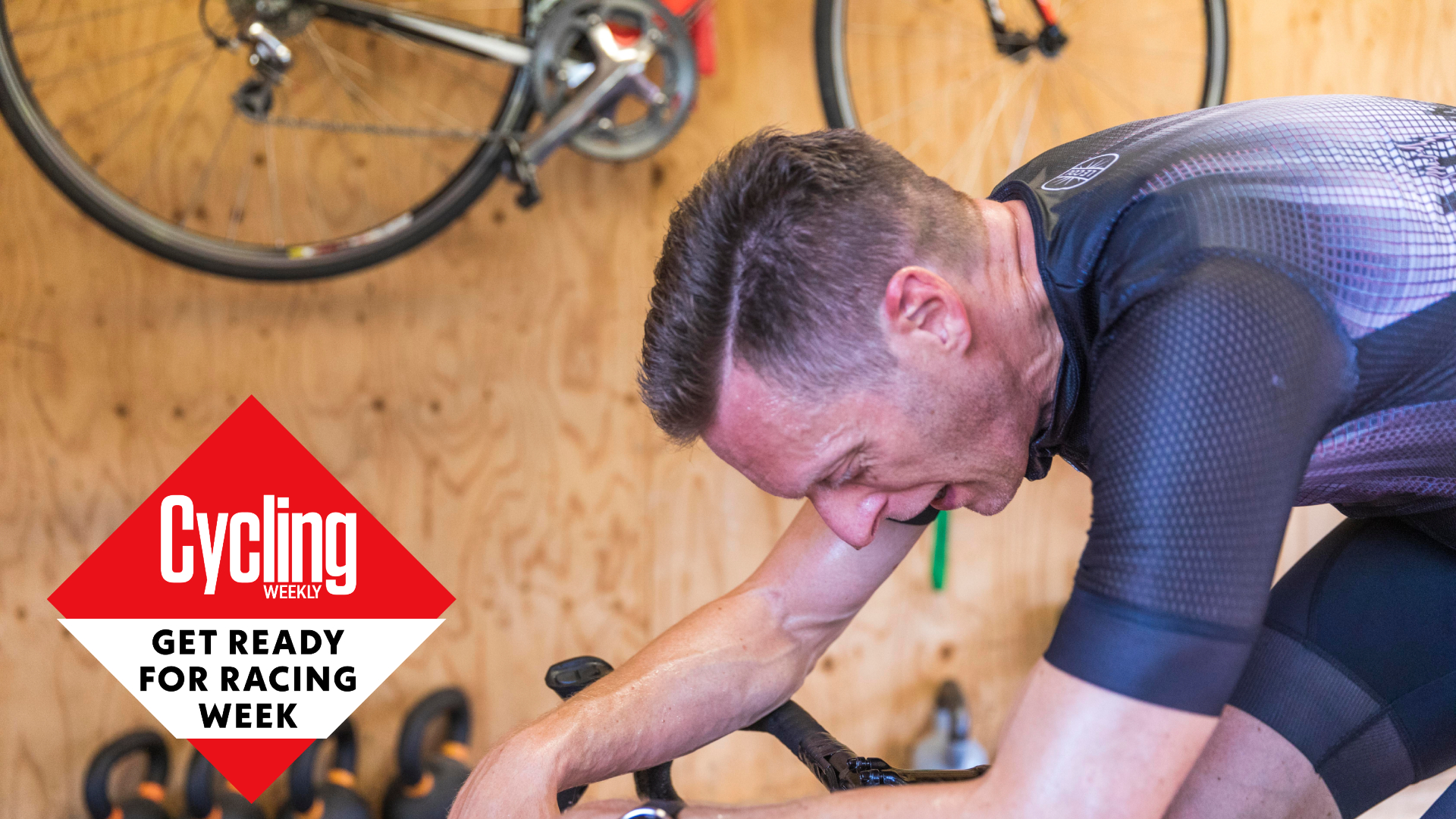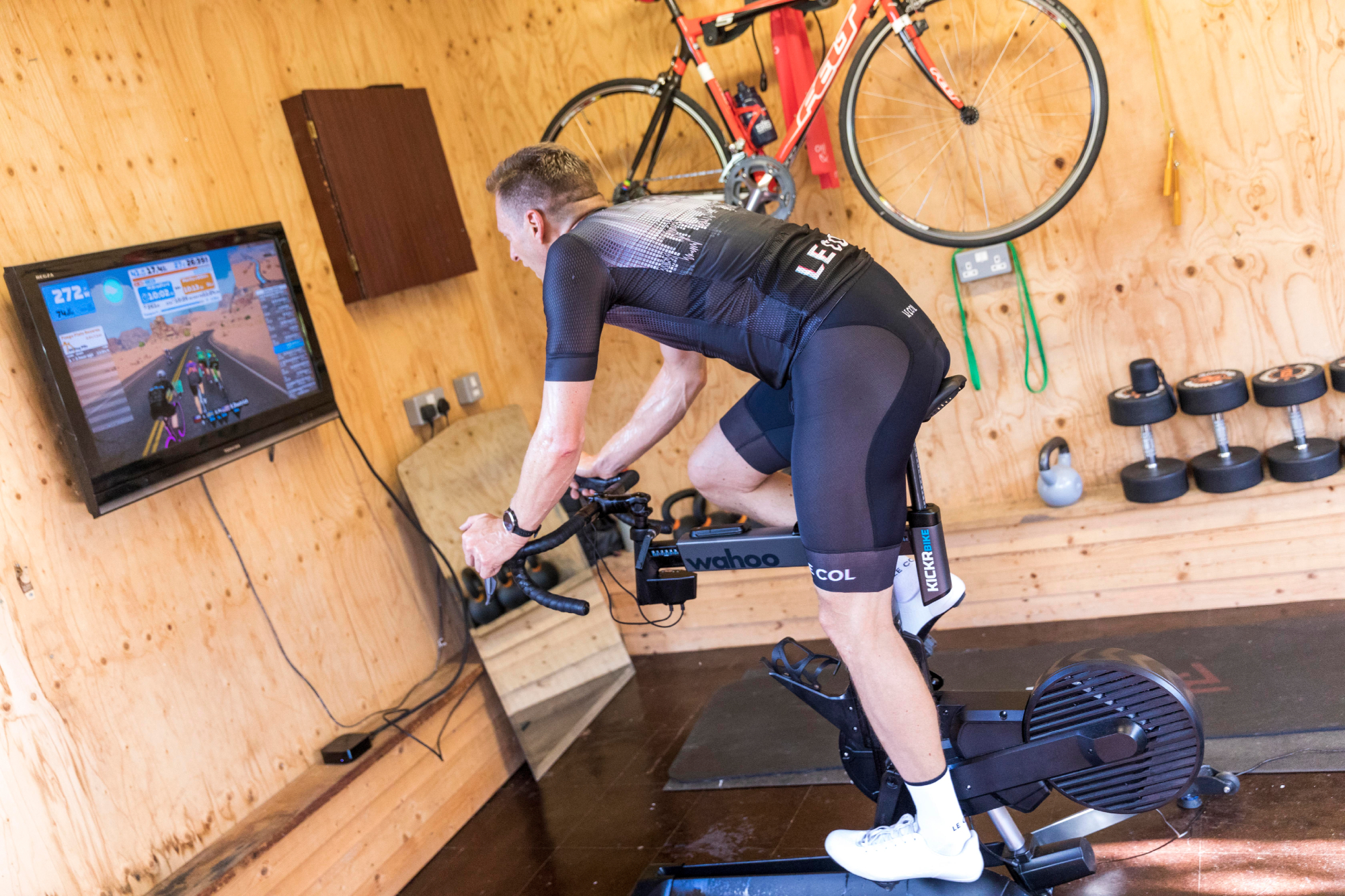Ask a coach: Can 'panic training' ever actually help ahead of a big event?
Life happened and you missed a chunk of training; your event is nearing, and you don't feel ready - we take a look at if last minute training can be utilised to make a positive difference come event day


We all know that feeling – the first races are just around the corner, and you start to question just how ready you are. Is everyone else going to be going much better than last year? Could it be worth squeezing in some last-minute training? We put the question to cycling coach James Spragg to find out....

Sports scientist and coach James Spragg is one of the experts who will be answering your questions in Cycling Weekly's ASK A CYCLING COACH series which comes out every Wednesday. Working both in research and applied settings, he currently runs Intercept Performance Consultancy.
First thing first – your form is the product of a lot of training over a long period of time. This is why we all spend all winter training and don’t just get the bike out of the shed a couple of weeks before the first race – well I hope not anyway!
Panic training is never going to make up for a longer period of sub-par training - but let's explore when and when not to get in some last-minute ‘panic training’.
When to avoid
The biggest mistake I see riders making when it comes to those last couple of weeks before the start of the season, or before a big cycling goal, is to try and squeeze as much training in as possible simply because they are not confident in their own performances - this is a path to self-destruction!
If training has been going well, you have had a cycling training plan in place and have followed it then you just need to trust in that plan. Doing anything else is more likely to compromise your performance than improve it.
When to use last minute training

The opposite also applies. Let’s say that you had a great plan in place but then for whatever reason things went sideways and you missed a chunk of training. Now might be the time to revise the plan and get in some last-minute work.
You might notice that in this section I am avoiding the term ‘panic-training’. Panic training infers that the training load is uncontrolled and unplanned - this type of training will 99/100 do more harm than good.
Get The Leadout Newsletter
The latest race content, interviews, features, reviews and expert buying guides, direct to your inbox!
Instead, a far better approach is to re-plan your training around the time you still have available. Remember to apply all the fundamentals of training: overload, specificity, recovery, and adaptation.
What to include in the ‘re-planned’ training
If you are having to make last-minute changes then chances are you are pretty close to your next event. At this point, it’s probably sensible to focus on intensity rather than volume. The physiological adaptations to intensity are quicker to take place than those to increased training volume. This is why when we plan training, we typically work from high training volume to high training intensity.
You should also consider the specificity of the training – When you need to re-plan at the last minute make the sessions as specific as possible to the intensity you will encounter in your upcoming event. This will not only give the best short-term boost in fitness but will also help you prepare mentally for the task ahead.
The verdict
If all has been going well in training, then it’s time to trust in the process. Those last-minute doubts are normal but trying to alleviate them through panic training is likely to do more harm than good!
However, if things haven’t been going swimmingly in training, then it's time to re-plan rather than panic! Figure out how much time you have left, how much time you will need to recover from the training to be fresh and ready to go on race day, and then plan backwards from that to judge what you can do in the remaining time! Remember in the short term it makes sense to focus on specific intense training than general high-volume training.

Thank you for reading 20 articles this month* Join now for unlimited access
Enjoy your first month for just £1 / $1 / €1
*Read 5 free articles per month without a subscription

Join now for unlimited access
Try first month for just £1 / $1 / €1
James Spragg is a sports scientist and coach, working both in research and applied settings. When not working with athletes James can be found skiing, climbing, cycling or drinking coffee!
Alongside Dan Lorang and Peter Leo, James runs Intercept Performance Consultancy. Over the last 8 years in various roles, as coaches, performance consultants, performance managers, and sports scientists, Dan, James and Peter have played a role in helping athletes achieve more than 10 World Championship titles, several Olympics medals (including a Gold and Silver Medal in Tokyo 2020) and several Top 5 results in some of the biggest sporting events on the planet (Tour de France, Olympics, World and European Championships). Our single focus is on improving performance in all settings.
-
 'I've bought four kilos of Haribo just in case' - Meet Dr Sarah Ruggins, who has gone from paralysis to aiming for the LEJOGLE record
'I've bought four kilos of Haribo just in case' - Meet Dr Sarah Ruggins, who has gone from paralysis to aiming for the LEJOGLE recordCanadian is aiming to take the overall record for Lands End to John O' Groats to Lands End, which currently stands at five days, 18 hours
By Adam Becket
-
 The sun's out and so am I: why there's no shame in being a fair-weather bike rider
The sun's out and so am I: why there's no shame in being a fair-weather bike riderLet's be honest, rain and riding bikes don't mix well – there's nothing wrong with waiting for the sun
By James Shrubsall